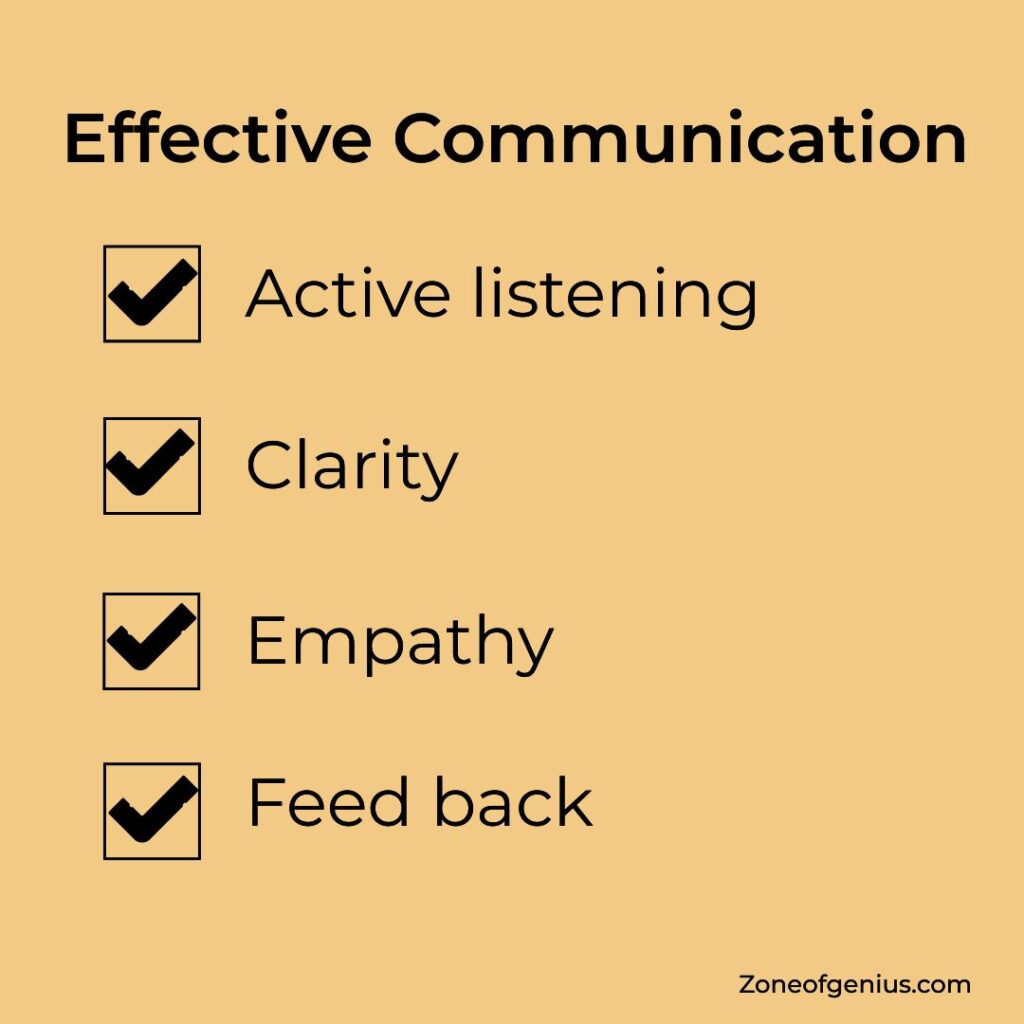The success of any project, team, organization, or business depends on good leadership. Successful leaders can inspire their team to work towards a common goal, navigate through challenges, and achieve great things. However, not all leaders are successful. So, what are the traits of successful leaders? Can we have these characteristics?
Many leaders fail to inspire their teams, struggle with decision-making, and lack the skills to achieve their goals. So, what makes successful leaders different? Explore these ten traits of successful leaders and how to develop them.
Let’s get started!
Visionary Thinking
An ideal leader clearly understands the future they want to create and can communicate that vision to their team. They plan and do not fear taking risks to achieve their goals. Visionary thinking helps leaders to estimate costs, tackle obstacles, and put together the small events that make the bigger picture.
To develop visionary leadership skills, try the following:
- Think big: Set audacious goals that will motivate you and your team and keep them focused. Don’t be afraid of your dreams.
- Communicate your vision: Ensure your team understands your vision and how their work contributes to achieving it.
- Seek feedback: Get feedback from your team and other stakeholders to ensure your vision is realistic and achievable.
- Set SMART goals: Organize and access your goals. Ensure you build the culture of setting SMART goals.
Effective Communication
Effective communication is a cornerstone of successful leadership. A leader must be able to articulate their vision, goals, and expectations clearly. Leaders who communicate well can build trust, inspire their team, and create a sense of unity.
To improve your communication skills as a leader, consider the following:
- Listen actively: Listen to your team members without interrupting them, and ask open-ended questions to clarify their points.
- Be clear and concise: Ensure your team or employees understand the idea or goal when communicating with them.
- Be open and transparent: Share information about decisions, goals, and challenges with your team. This will help them feel more invested in the work they are doing.

Related: Improve the Way You Communicate and be a Better Leader with Radical Candor
Decisiveness
Successful leaders are decisive and can make tough decisions quickly. They clearly understand the risks and rewards of different options and are not afraid to take action.
You can learn to be decisive, especially in situations when tough business decisions arise. To develop strong leadership skills, try the following:
- Analyze the situation: Gather all the relevant information and analyze the situation carefully before deciding.
- Trust your instincts: Trust your instincts and decide quickly, even if it’s not perfect. Remember, indecision can be more damaging than making the wrong decision.
- Learn from your mistakes: Take responsibility for your mistakes and learn from them. Use your experience to make better decisions in the future.
Adaptability
In today’s fast-changing world, the ability to adapt is an essential leadership quality. Flexible leaders can stay ahead of the curve and make better decisions. How fast can you adapt to change as a leader?
To cultivate adaptability as a leader, try the following:
- Stay informed: Stay up-to-date on industry trends and changes in the market. This will help you anticipate changes and adjust your strategy accordingly.
- Embrace change: Don’t be afraid to change your plan when circumstances change. Be willing to pivot and try new approaches. You can do this with your team.
- Be open-minded: Be willing to consider new ideas and perspectives. This will help you stay agile and adapt to changes more quickly.
Empathy
Empathetic leadership is about understanding and responding to the needs and feelings of others. Compassionate leaders can build strong team relationships and create a positive work environment.
Successful leaders have high emotional intelligence and can connect with their team members on a personal level. It fosters innovation and collaboration.
To develop empathy as a leader, consider the following:
- Put yourself in their shoes: Try to understand the perspective of your team members and stakeholders.
- Show Compassion: Remember that your team and employees’ physical and mental well-being is essential.
- Acknowledge contributions: Celebrate milestones, teams, and individuals who accomplish things. Acknowledge their concerns and feelings.
Confidence
Confidence is an essential trait of successful leaders. You can see confidence in businesses and organizations with effective leadership.
A confident leader inspires trust, respect, and admiration from their team members. They are unafraid to take risks or make difficult decisions and can handle criticism and setbacks with grace and resilience.
If you want to develop this leadership quality, try the following:
- Develop your skills: Focus on your growth, strengths, and accomplishments. Celebrate your successes and acknowledge your contributions to the team’s achievements.
- Practice positive self-talk: Avoid negative self-criticism.
- Take calculated risks: Embrace challenges and opportunities for growth and learning.
You can do this for your employees through career planning. Helping them upskill for the next phase of their career makes them and your business stand out.
Integrity
Integrity is another critical trait of successful leaders. Leaders who operate with integrity earn the trust and respect of their team, customers, and stakeholders. As a leader, you must be honest, transparent, and accountable in all your dealings.
To build and maintain your integrity as a leader, you should:
- Lead by example.
- Set clear expectations for yourself and your team.
- Be honest and transparent in your communication.
- Follow through on your commitments.
Accountability
Concerning accountability, there are two types of persons—those who take responsibility and are accountable for their actions and those who blame others. Good leaders are responsible for their mistakes and failures and take corrective actions to make things right.
Therefore, a leader who demonstrates accountability earns the trust and respect of their team members and fosters a culture of responsibility and ownership. Accountability is one of the leadership qualities you should extend to your team. Customers can spot when a business is accountable and reliable ―it gives your business a good image.
To develop your accountability skills:
- Practice self-reflection and introspection: Reflect on your actions and decisions and identify how to improve.
- Be accountable: Hold yourself responsible for your mistakes and failures, and take responsibility for the consequences of your actions.
- Extend the culture of your business: Set clear expectations for your team members and hold them accountable for their performance.
Creativity
A creative mind is a critical characteristic of a leader. Successful leaders are creative and innovative. They think outside the box and come up with new ideas. They encourage their team members to think creatively and foster a culture of innovation and experimentation.

Have you ever been scared to try something new in your business? You can try the following tips to promote innovation in your business:
- Brainstorm with your team: Set aside time to think creatively and develop new ideas.
- Find inspiration in your environment: Try books, take walks, listen to podcasts, or attend workshops.
- Try AB testing: Try working on two different ideas and track the progress with your team to see what’s best for your business.
PS: You can check your old ideas and records to see the actions you’ve taken that have worked and then brainstorm for improvements.
For small businesses, you could set up two teams to oversee the two projects for AB testing. This allows for healthy competition where each unit is motivated to make the idea work.
Resilience
Resilience is your ability to bounce back from setbacks and adversity. Successful business leaders are resilient and can handle challenges and setbacks. They have a growth mindset and view setbacks as opportunities for learning and growth.
To develop resilience skills:
- Practice self-care and stress management: Take care of your physical and mental health by exercising regularly, getting quality sleep, and eating a healthy diet.
- Manage your stress levels: Develop healthy coping mechanisms such as meditation or journaling.
- Enjoy learning: View setbacks as opportunities for growth and learning, and focus on the lessons you can learn from them.
Bonus Leadership Characteristic: Mentorship
Successful leaders are mentors and role models for their team members. They guide and support their team members and help them develop their skills and capabilities. A leader who demonstrates mentorship skills fosters a culture of continuous learning and development.
To develop mentorship skills,
- Focus on building relationships with your team members. Take time to get to know them personally and understand their goals and aspirations.
- Provide constructive feedback and guidance to help them improve their performance.
- Be a role model for your team members by demonstrating the traits and skills you want them to develop.
Successful leaders combine skills, traits, and behaviors that can be developed and improved over time. By cultivating these top 10 traits of successful leaders, you can become a more effective and inspiring leader.
Remember, leadership is not about your title or position but your mindset and impact on others. So, take the time to develop these skills and traits and inspire and empower others to achieve their full potential.
Related Articles:










